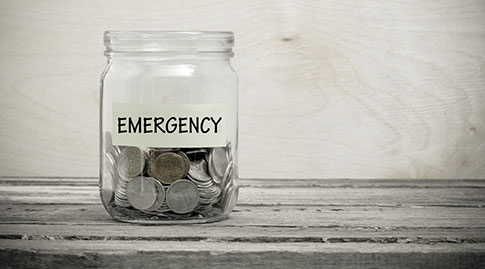How much do you have saved in an emergency fund? If you’re like many Americans, the answer is, “Not enough.” Today, we’re going to cover why homeowners need a plan to protect themselves if something goes wrong in their home.
A general emergency fund is always a good idea to help with all of life’s unexpected expenses, but a home emergency fund is just as vital to ensuring repair bills don’t wreak financial havoc or force you to pay for them with a credit card and rack up all that interest.
In a post at Realtor.com, Robert Reed, a partner at Partnership Financial in Columbus, Ohio, recommends keeping a cash reserve of three to six months of living expenses in a home repair emergency fund. Target 1 to 3 percent of your home’s value, he advises, noting that the age and condition of your home might be cause for some adjustment to that goal.
Owners of newer homes might not have to tap an emergency fund immediately since appliances are newer and roofs and foundations are not showing the wear of age. But even new homes can fall victim to unexpected catastrophes, such as a flooded basement, so skipping a fund altogether is not advised.
Those with older homes might require accessing your emergency fund sooner, since, even with warranties and life expectancies, you never know when a washer or water heater will reach the end of the line. For example, a new water heater will cost you a minimum of about $500, with labor likely running about the same. Depending on what type of water heater you buy, the costs could be significantly higher. And that new washing machine will cost you a minimum of about $400, and goes up from there depending on the features or amenities you want or need.
In addition, a home repair emergency fund can help you take in stride any other disasters, such as a burst pipe to a flooded basement.
In the same Realtor.com post, Reed advises trying to save at least 20 percent of your mortgage balance for a dire emergency fund. Such a fund is a safety net for coping with calamities such as loss of a job or extended illness and can ensure that you don’t lose your home when you lose a source of income, he said.
In addition, experts recommend budgeting for some of the bigger, inevitable home repair/replacement expenses such as roof replacement.
2-10 HBW offers the most comprehensive Home Warranty coverage for homeowners. Let us help you protect your home.








